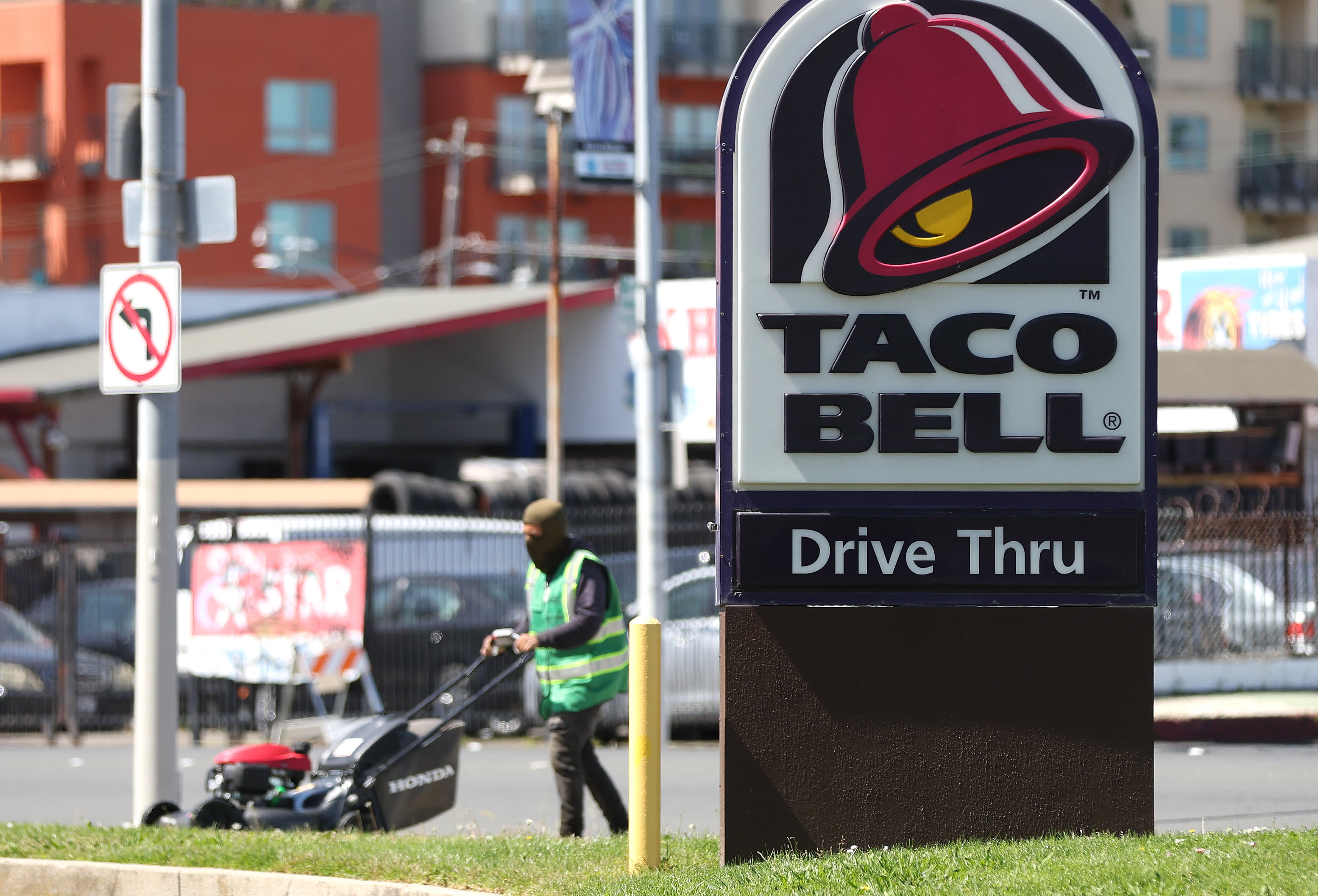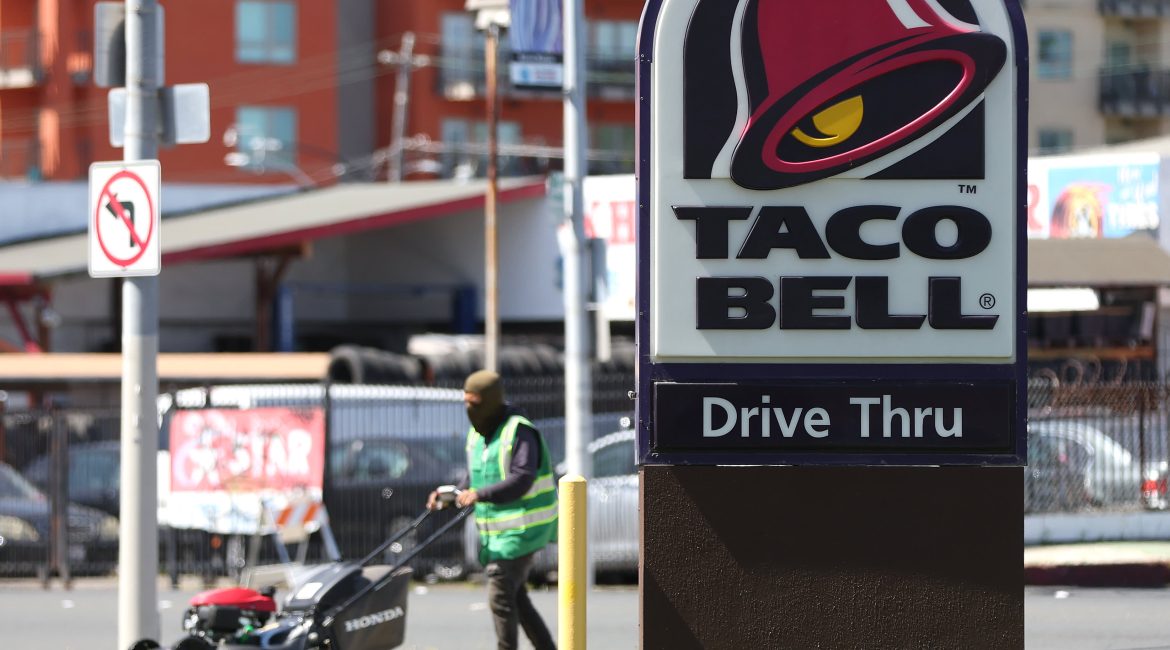
A sign in front of a Taco Bell restaurant in Richmond, California, on May 1, 2024.
Justin Sullivan | Getty Images
Yum Brands on Tuesday reported a mixed quarter as both Pizza Hut and KFC reported declining same-store sales.
“The impacts from the Middle East conflict, in addition to a more cost-conscious consumer, have presented headwinds to same-store sales,” Yum CEO David Gibbs told analysts on the company’s conference call.
He added that sales trends have improved in the U.S. compared with the prior quarter, thanks to value meals such as Pizza Hut’s $7 Deal Lovers.
Here’s what the company reported compared with what Wall Street was expecting, based on a survey of analysts by LSEG:
- Earnings per share: $1.35 adjusted vs. $1.33 expected
- Revenue: $1.76 billion vs. $1.8 billion expected
Yum reported second-quarter net income of $367 million, or $1.28 per share, down from $418 million, or $1.46 per share, a year earlier.
Excluding items, the company earned $1.35 per share.
Net sales rose 4% to $1.76 billion, fueled by new restaurant openings. Yum’s same-store sales fell 1% in the quarter as both Pizza Hut and KFC reported same-store sales declines of 3%.
KFC’s U.S. restaurants continued to struggle, with domestic same-store sales shrinking 5%. And although the chicken chain’s system sales picked up this quarter in China, its largest market, KFC’s overall international same-store sales fell 3%.
Pizza Hut’s U.S. same-store sales decreased 1%, while its international same-store sales declined 4%.
Taco Bell, the crown jewel of Yum’s portfolio, saw its same-store sales increase 5% in the quarter. The chain’s footprint is largely concentrated in the U.S., where its reputation for value has helped it weather the pullback in consumer spending. Taco Bell’s same-store sales grew across all income cohorts, Gibbs said.
On Wednesday, Yum announced plans to expand its rollout of artificial intelligence across Taco Bell drive-thru lanes to hundreds of its U.S. restaurants by the end of the year.
Roughly 200 of Yum’s restaurants are temporarily closed across the Middle East, Malaysia and Indonesia, according to Chief Financial Officer Chris Turner. Some of those locations may reopen as soon as later this month, but he acknowledged the risk that some could close permanently if the conflict worsens.

